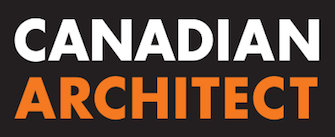The Parti Wall
JA Architecture Studio

WINNER OF A 2023 CANADIAN ARCHITECT AWARD OF MERIT
An exploration in formal massing, natural light and materiality working within the context of an imagined urban vernacular. It is evident that the end result is the product of a highly intensive formal investigation based on spatial relationships, access to natural light, responses to climate, and relationships to the landscape. — Omar Gandhi, juror
This exploration of space and materials is just the kind of thing that is good to see in small-scale residential work. Lovely graphic representation. — Michael Heeney, juror
When is a dividing wall more than a dividing wall? The Parti Wall conceptualizes the spine shared by two adjoining residences and their respective laneway suites as an armature that works with the context of the block to draw natural light deep into the homes, incorporate a range of outdoor spaces within each property with “different degrees of public-ness,” and create interior, multi-storey ‘nested gardens’ for the two street-facing houses.
Circulation for these proposed multigenerational residences on narrow, downtown Toronto lots is organized into two promenades, one on each side of the central spine. The promenades align in places and bifurcate in plan or in section in others. The northern main house abuts a laneway along its north side. Promenade A provides above-grade entry to this residence and extends up through its levels at the core via a sculptural stair and an elevator. This promenade also extends below grade–under a rear courtyard–to connect the main house directly to the laneway suite. Promenade B diverts around a mature front-yard tree and descends to the below-grade entry to the southern main house. As with Promenade A, Promenade B’s vertical circulation is via a sculptural stair and elevator, both located at the core, and there is a subterranean connection between the main house and the laneway suite, beneath their shared courtyard.

In the project’s hybrid structure, the concrete core containing each residence’s elevator and central stair rises out of the foundation of the shared concrete spine. The lightweight, wood-frame structures that enclose the remaining volumes interlock with the concrete construction.
Unlike a conventional duplex, the residences on either side of this project’s shared spine do not mirror one another: they take different forms because the end-block position of the northern house presents opportunities that the mid-block position of the southern house does not. The laneway running along the north side of the northern house makes possible an interior ‘nested garden’ that rises the full height of the residence along this edge. For the mid-block house, a two-storey nested garden is incorporated at the front: a large oculus in the steeply sloped roof creates a semi-enclosed space on the top floor, and the alignment of the oculus with a circular skylight allows natural light to stream down into the kitchen below.

In both residences, the views that open up to the outside world and from one level to another are carefully choreographed to enhance the experience of living in these homes—and of moving through them. The sculptural skylight nestled into the steps descending into the southern house’s courtyard exemplifies the imaginative attention to detail that characterizes the entire composition: it draws natural light into a sunken dining area and the subterranean passageway that connects the main house to its laneway suite.
CLIENT Houyan Homes and Archic Custom Homes | ARCHITECT TEAM Nima Javidi, Behnaz Assadi, Kyle O’Brien, Larissa Ho, Reilly Walker | STRUCTURAL Moses Structural Engineering | PLANNING Galbraith & Associates | MECHANICAL/ELECTRICAL/PLUMBING Enocan | LANDSCAPE Behnaz Assadi (Ja Studio) | AREA 858 m2 (480 m2+ 184 m2) | BUDGET Withheld | STATUS Design Development | ANTICIPATED COMPLETION 2024 (main house), 2026 (laneway suite)


